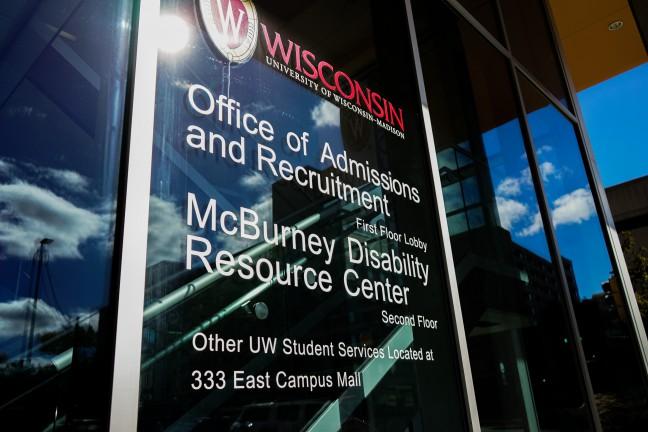A large amount of students attending University of Wisconsin have heard of the McBurney Center. Most students recognize it solely by name or from the vague description at the end of every professor’s syllabus.
But McBurney, UW’s student disability center, is a multifaceted organization dedicated to making campus a universally accessible community, a big and complicated task to undertake.
According to their website, the ultimate vision of the center is to create “a community that fosters the full participation and contribution of every member, with individual accommodation needed only in unique or uncommon situations.”
They also work closely with their students to help them access every opportunity a non-disabled student would have, as well as advocate for the disabled community and correct the misconceptions about disabilities themselves.
Cathleen Trueba, director of the McBurney Center, has been in the position for the past 28 years.
When approaching the McBurney Center and the diverse culture of students represented there, Trueba says the first thing to focus on is what all of the students have in common.
This means managing the features of each unique disability and to “level the playing field” for students who may face obstacles that most never encounter.
The majority of students who have McBurney accommodations have access to extra time on exams. Other test accommodations include small group testing, assistive technology and further services to cover the spectrum of impairments students may face.
Surprisingly, the majority of students with the McBurney Center have disabilities that aren’t obviously physically apparent.
Trueba said only about 20 to 25 percent of students have an impairment that is apparent. And this statistic is why the face of disability is so diverse and what can make the advocacy and acceptance of disabilities difficult.
For many with disabilities, the recognition of an impairment isn’t always straightforward.
There’s a level of vulnerability involved with disclosure about certain disabilities such as depression or other mental illnesses. This divulgence is only made possible by entrusting another person with that information, which is sometimes a difficult thing to do.
For some struggling with a disability, they see it as part of their identity, but for others, it’s merely a small aspect of their lives.
According to Trueba, the biggest misconception about the McBurney Center is one has to be very disabled to seek assistance.
When the term disability is used, the majority of people automatically think of something physical, such as someone who is blind or in a wheelchair. This often prevents people from seeking help for a less obvious disability, such as learning disorders, diabetes or mental health, which are still impacting disabilities.
According to Trueba, the biggest obstacle people face with seeking help from the McBurney Center are the thoughts, “If I come into this office, I don’t belong here” and “I shouldn’t need that help.”
Unfortunately, seeking help for a disability often isn’t straightforward. A large part of the battle for the disabled and advocates alike is ridding themselves of personal biases and stereotypes.
As a final point, Trueba says the one takeaway she would like people to have is the final objective. “Our goal — above all — is to find people solutions,” Trueba said.
Most of the time, McBurney can help find these solutions. Sometimes, it involves creativity, but that’s the fun part about it. It’s the small things that make a difference and these can make or break the college experience for a student with a disability.
Members of the student body, including staff and faculty, should become advocates for disabled students and the McBurney Center. We should be more aware and receptive to what the McBurney Center does. Without it, many students wouldn’t have access to the same UW experience.
Hannah Fricke (hfricke@wisc.edu) is a junior majoring in microbiology.


